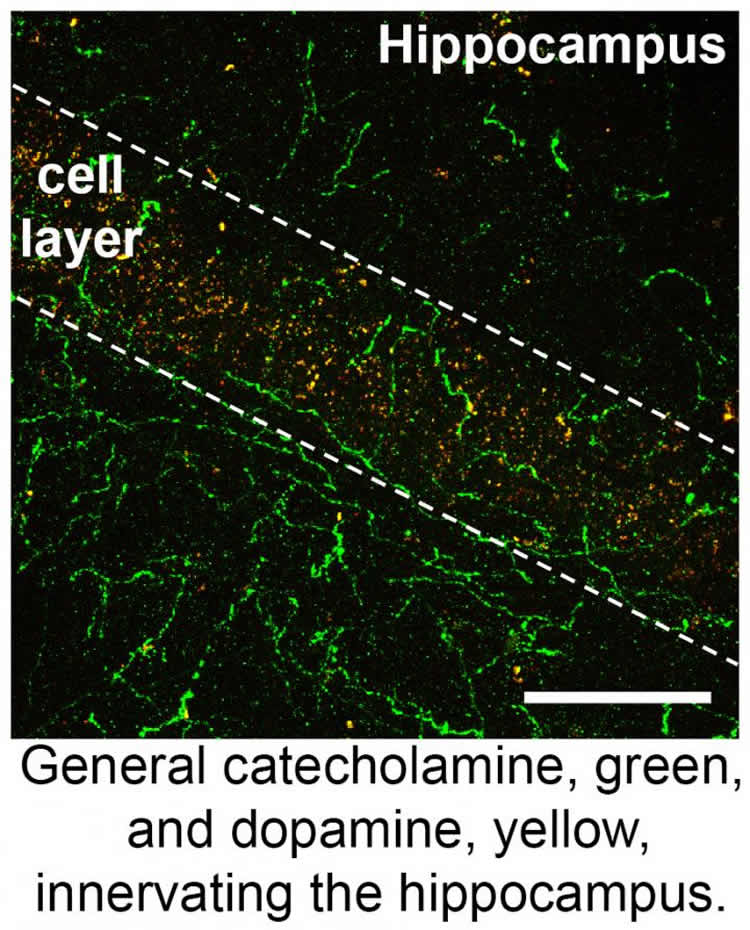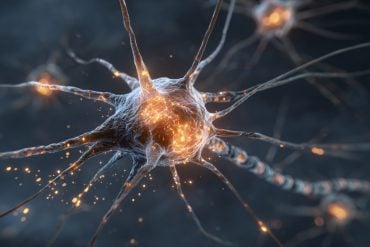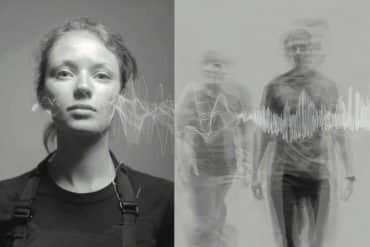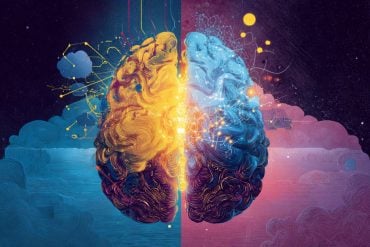The brain chemical dopamine regulates how mice learn to avoid a disagreeable encounter, according to new research from the Perelman School of Medicine at the University of Pennsylvania. “We know that dopamine reinforces ‘rewarding’ behaviors, but to our surprise, we have now shown that situations that animals learn to avoid are also regulated by dopamine,” said senior author John Dani, PhD, chair of the department of Neuroscience. The team’s findings are published this month in Cell Reports.
Special neurons in the brain send out a burst of dopamine in both negative and positive situations. However, the exact way in which dopamine neurons are wired and connected to the brain center called the hippocampus remains controversial among neuroscientists. Knowing exactly how the neurotransmitter dopamine shapes memory and behavior in association with an event or the surrounding environment is important to better understand such conditions as post-traumatic stress syndrome.

“We showed in mice that a special circuit in the hippocampus has flexibility in combining with environmental input to shape behavior during an experiment in which the mice learn to avoid an unpleasant experience,” Dani said. “This is the first time that we have been able to show, as proof of principle, that the dopamine circuitry is also involved in learning to avoid aversive situations. ”
Prevailing Questions
In previous animal experiments, when mice experience an unexpected reward, for example discovering a tube in which they can obtain a sugar-water treat, a burst of dopamine is emitted in the brain. The debate among neuroscientists centers on whether the neurotransmitter only shapes behavior when an animal is receiving a positive reward or if the neurotransmitter is also involved in shaping the way an animal learns how to avoid an uncomfortable situation.
The team found that if the mice encounter an negative stimuli, a subgroup of neurons fires and releases dopamine in conjunction with the aversive environmental input. They also showed that when the dopamine signal to the hippocampus is chemically blocked in the mice, it prevents them from learning to avoid the negative stimulus. However, if the dopamine signal is chemically boosted in the mice, they remember to avoid the aversive event longer.
“The bottom line of our study is that dopamine plays a role in both conditions, and that dopamine enables mice to learn and remember to avoid the negative situation, in this case avoid a light foot shock in one room of a two-room enclosure.”
Co-authors include postdoctoral fellows Kechun Yang and Theo Tsetsenis, both from Penn, and John Broussard, Baylor University.
Funding: This work was supported by the National Institutes of Health (NS21229, DA09411, DA021194, MH067119, DA017173).
Source: Karen Kreeger – University of Pennsylvania
Image Credit: Image is credited to John Dani, Ph.D., Perelman School of Medicine, University of Pennsylvania.
Original Research: Full open access research for “Dopamine Regulates Aversive Contextual Learning and Associated In Vivo Synaptic Plasticity in the Hippocampus” by John I. Broussard, Kechun Yang, Amber T. Levine, Theodoros Tsetsenis, Daniel Jenson, Fei Cao, Isabella Garcia, Benjamin R. Arenkiel, Fu-Ming Zhou, Mariella De Biasi, and John A. Dani in Cell Reports. Published online February 18 2016 doi:10.1016/j.celrep.2016.01.070
Abstract
Dopamine Regulates Aversive Contextual Learning and Associated In Vivo Synaptic Plasticity in the Hippocampus
Highlights
•Molecular approaches verified dopamine innervation of the hippocampus
•Inhibitory avoidance (IA) learning induces ex vivo and in vivo LTP in the CA1
•D1-like dopamine receptor inhibition prevents IA induction of LTP
•Dopamine activation enhances and inhibition prevents long-term retention of IA
Summary
Dopamine release during reward-driven behaviors influences synaptic plasticity. However, dopamine innervation and release in the hippocampus and its role during aversive behaviors are controversial. Here, we show that in vivo hippocampal synaptic plasticity in the CA3-CA1 circuit underlies contextual learning during inhibitory avoidance (IA) training. Immunohistochemistry and molecular techniques verified sparse dopaminergic innervation of the hippocampus from the midbrain. The long-term synaptic potentiation (LTP) underlying the learning of IA was assessed with a D1-like dopamine receptor agonist or antagonist in ex vivo hippocampal slices and in vivo in freely moving mice. Inhibition of D1-like dopamine receptors impaired memory of the IA task and prevented the training-induced enhancement of both ex vivo and in vivo LTP induction. The results indicate that dopamine-receptor signaling during an aversive contextual task regulates aversive memory retention and regulates associated synaptic mechanisms in the hippocampus that likely underlie learning.
“Dopamine Regulates Aversive Contextual Learning and Associated In Vivo Synaptic Plasticity in the Hippocampus” by John I. Broussard, Kechun Yang, Amber T. Levine, Theodoros Tsetsenis, Daniel Jenson, Fei Cao, Isabella Garcia, Benjamin R. Arenkiel, Fu-Ming Zhou, Mariella De Biasi, and John A. Dani in Cell Reports. Published online February 18 2016 doi:10.1016/j.celrep.2016.01.070






